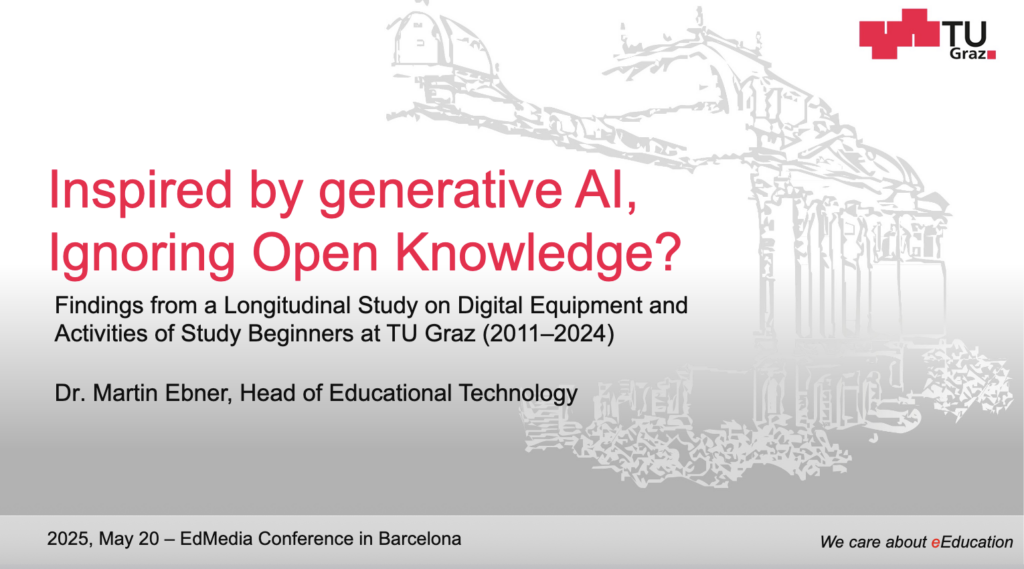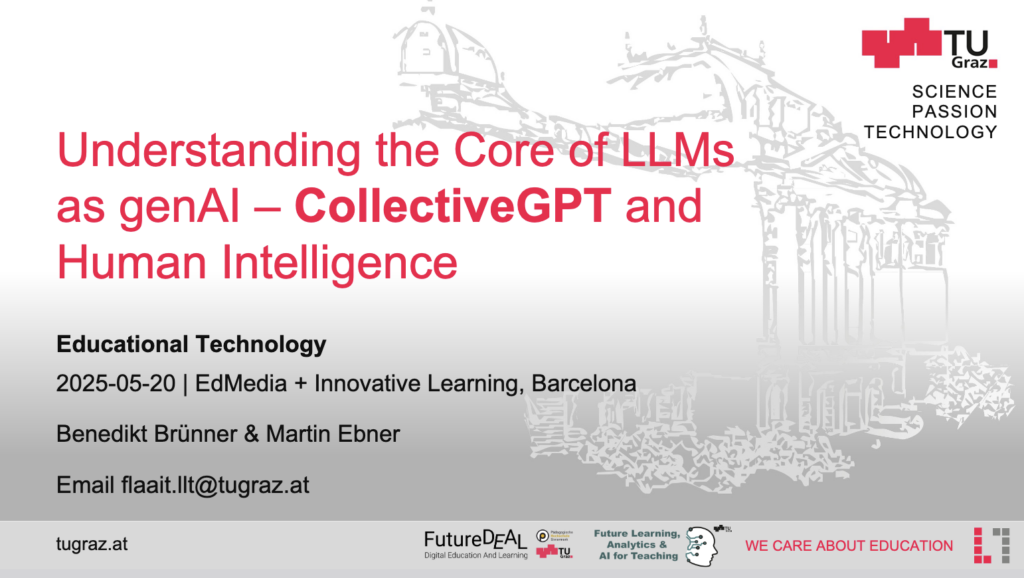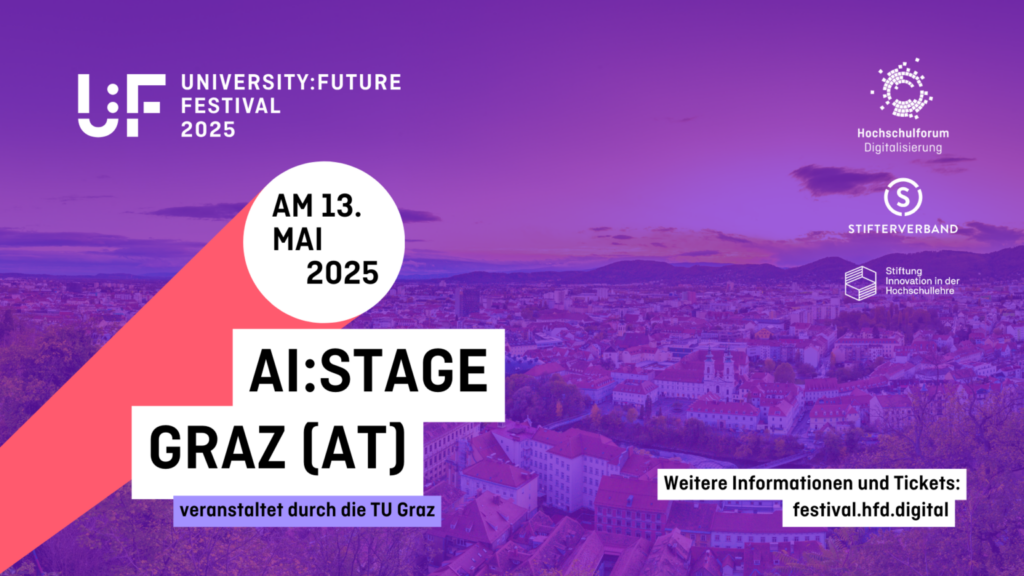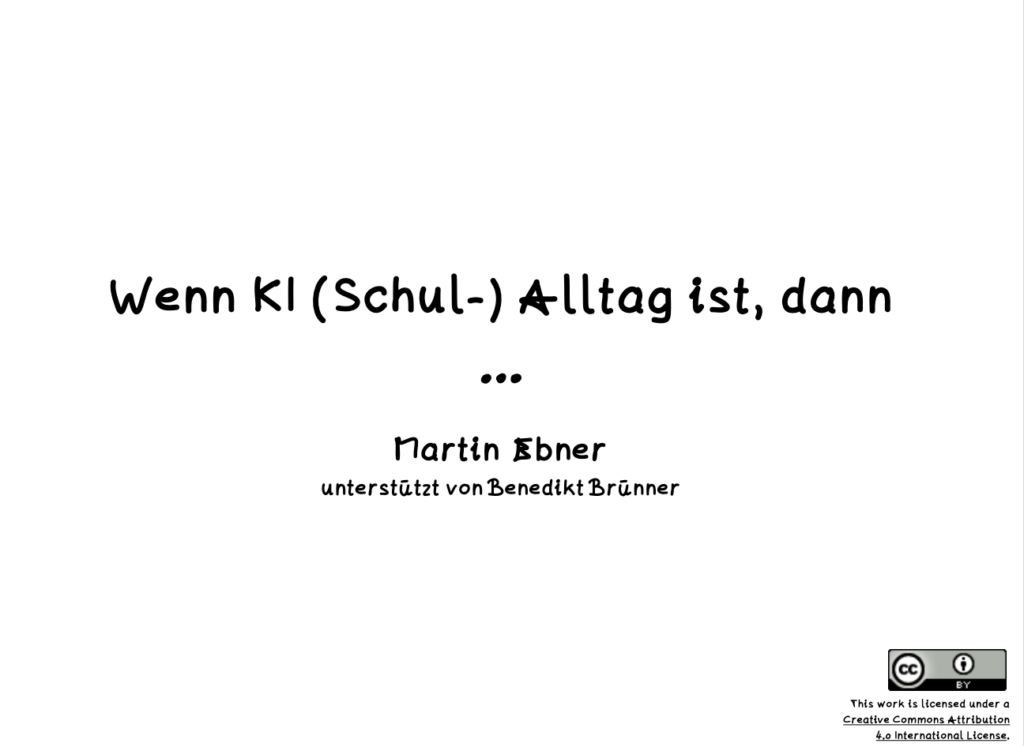We are delighted that we can offer another workshop for our „SIG“ at this year’s EDMedia conference in Barcelona titled „Exploring Educational Podcasts with AI„
Abstract:
How can educators unleash the power of AI without losing control over core educational strategies? In this workshop, we will introduce aicast, an open source platform for educational podcasts that combines the best of both worlds: AI-generated elements for personalization and flexibility, and fixed elements, with instructor-defined content to ensure pedagogical accuracy. This hybrid approach reduces the risks associated with AI-generated materials like hallucinations. Attendees will learn how the platform utilizes LLMs like ChatGPT for personalized content authoring and ElevenLabs for high-quality voice synthesis, enabling real-time creation of educational audio content. After a short demo and hands-on session, participants will engage in a guided discussion: What is the core of an educational podcast? How do structure, tone, and repetition affect learning? Most importantly from the perspective of an instructional designer, how must an educational podcast be? This session is part of the Special Interest Group on Emerging Technologies for Learning and Teaching and invites participants to think critically about the role of AI in educational podcasting. Even more we invite instructional designer to collaborate with us to bring educational podcast to a next level.
We would love to meet you in Barcelona, even more, if you can join our workshop – cu there 🙂
[Link to conference’s website]







